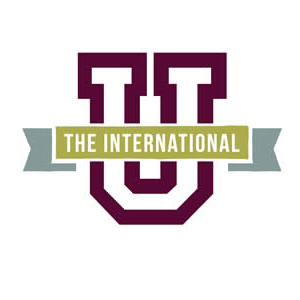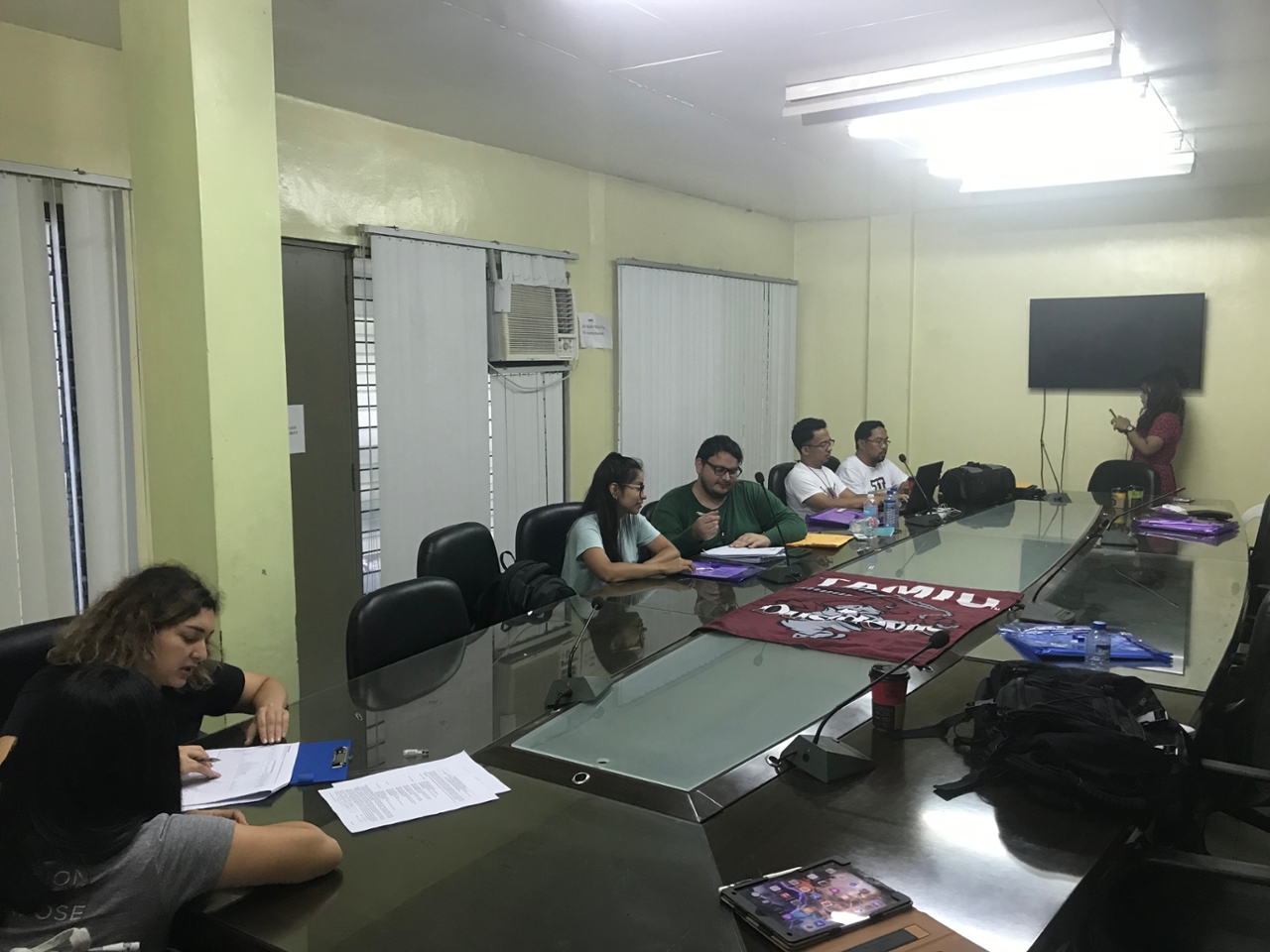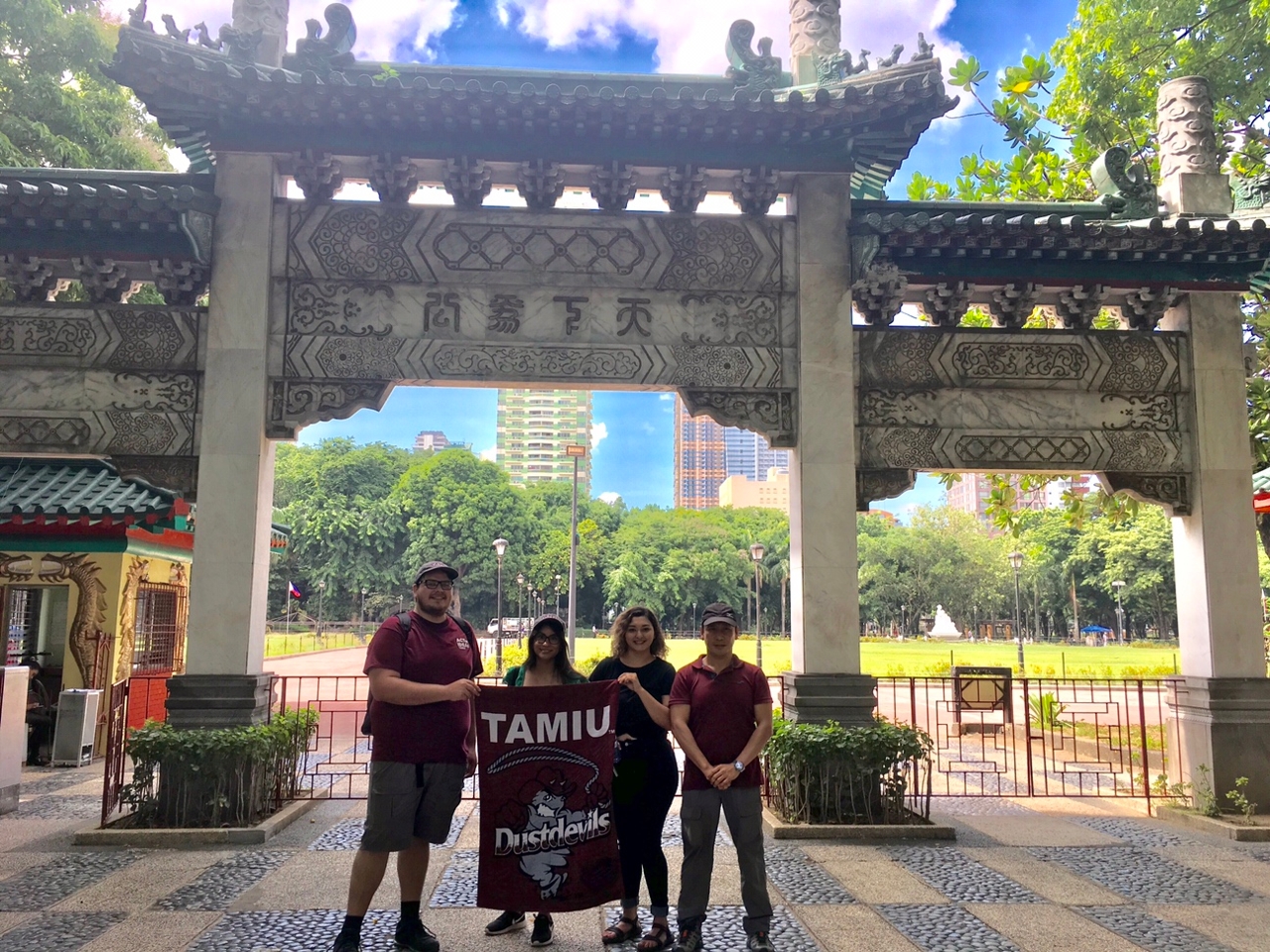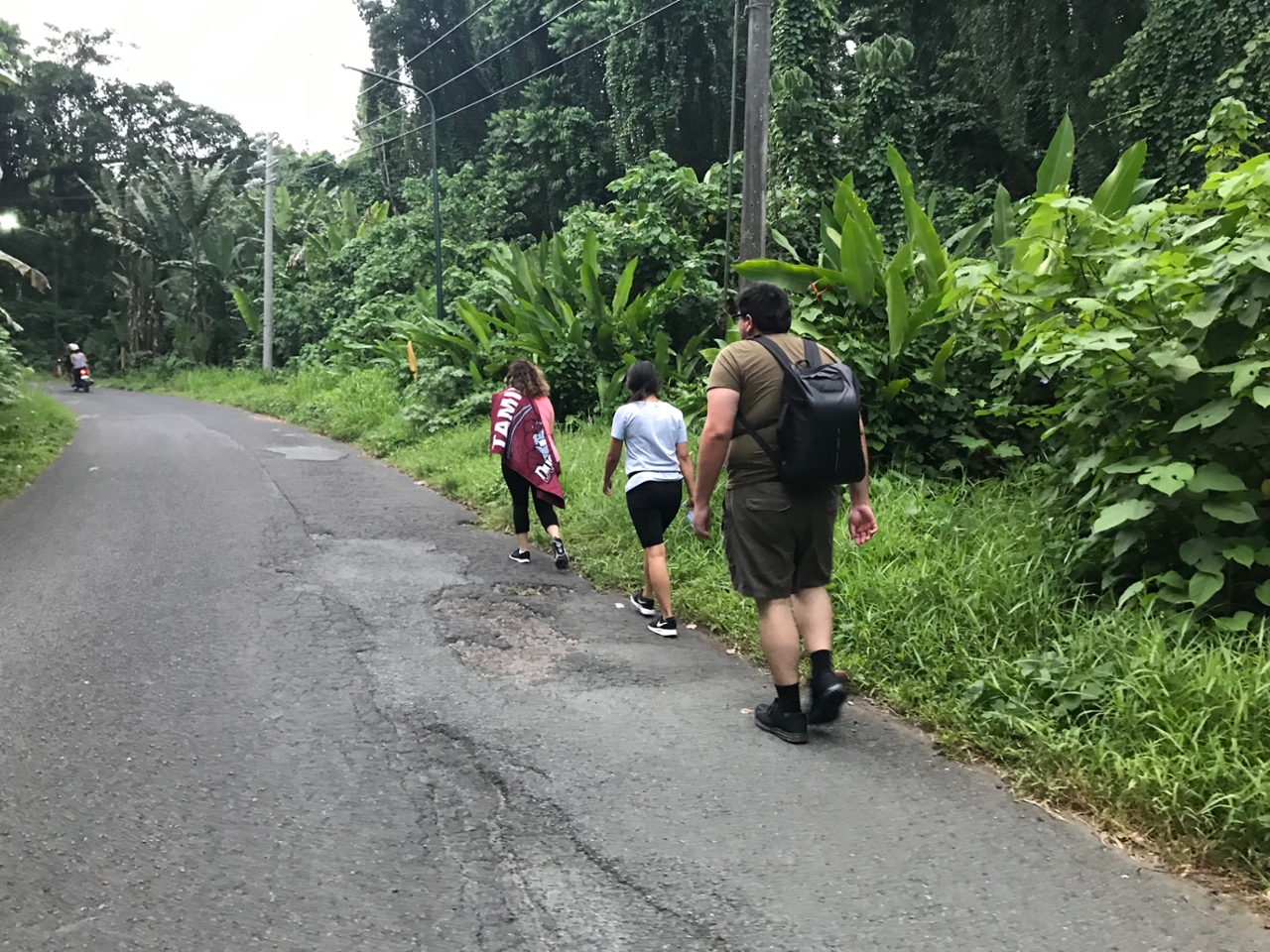TAMIU’s First-Ever Research Abroad Program Takes Place in the Philippines

This summer, Texas A&M International University (TAMIU) launched a dynamic, international learning opportunity program prototype that allowed students to not only study abroad, but to also conduct research in their host country, the Philippines.
Dr. Marcus Ynalvez, College of Arts and Sciences associate dean, led a group of students in TAMIU’s first-ever Research Abroad Program (RAP), that saw students collaborate closely with staff at the University of the Philippines Los Baños (UPLB).
“In contrast to the typical study abroad program, the RAP focuses on providing actual and real international research experience and mentoring to both graduate and undergraduate students,” explained Dr. Ynalvez, who was the lead faculty and principal investigator of a University Research Development Award (URDA)- funded study.
While in the Philippines, RAP students investigated how professors’ involvement in commercial science activities impact the ways they mentor and train their graduate students.
“In other words, the research seeks to document how professors who engage in commercial consulting and research infuse skills and values to their mentees,” Ynalvez said, “It also seeks to document the advantages and the disadvantages of professors’ commercial engagements.”
To fulfill their objective, Philippines Research Abroad Program (PhilRAP) members Ynalvez, Cesar Ines Rodríguez, and Jenale Canales, both MA in Sociology students, and Maritza Moraida, BS in Criminal Justice student, participated in planning, surveying, and interviewing 200 UPLB professors and doctoral students.
“PhilRAP students interviewed at various departments, colleges, and institutes on the UPLB campus,” Ynalvez said, “Students also conducted interviews at the International Rice Research Institute.”

In addition, students trekked to the Spanish-Colonial Era’s walled city of Manila, where they visited the oldest Catholic church in the Philippines (San Agustin Church), the National Museum, and Rizal Park.
“PhilRAP students also tried exotic Filipino food such as sea urchins (fresh from the sea) and the legendary balut (boiled duck embryo),” Ynalvez said.
He continued, “The idea of offering a RAP came from Triana González-Valdez, TAMIU director of the Office of International Engagement, and derives from the experiences of a National Science Foundation grant awarded to TAMIU between from 2008 to 2013. RAP is an experimental program and is TAMIU’s first. The experiences from the 2019 PhilRAP will be evaluated before TAMIU gets to move towards formalizing this as a routinely-offered program,” he said.

Student Cesar Rodríguez said the RAP experience was enriching.
“While on this international research experience, we were able to interview many individuals including professors and have in-depth conversations with them about any challenges they face when pursuing their research,” Rodríguez said.
Jenale Canales, said the research abroad expanded her knowledge beyond the classroom.
“Never in a million years did I imagine myself involved in an academic research project abroad in the Philippines,” Canales said, “This experience expanded my knowledge beyond textbooks on research budgeting, ethics in an international setting, and the history of the Philippines. Overall, I gained self-confidence while conducting face-to-face surveys and having various responsibilities during my travel.”
Another student, Moraida, said RAP challenged her as a student.
“Being an undergrad student three classes away from graduating, I never thought I would travel to the Philippines to conduct quantitative research,” she said, “Having past research experience at TAMIU made me challenge myself by doing research abroad.”
Ynalvez concluded, “The best take home piece is an international research experience packed with all its challenges, constraints, frustrations, and travails; which profoundly change students, and which no research methods textbook nor manual could ever capture,” Ynalvez said, “This experience teaches one that classroom training and actual front-line research activities are two different realities. The combination of both makes for a superior training.”
For more information, please contact Dr. Marcus Ynalvez at 956.326.2621, email mynalvez@tamiu.edu or visit offices located in the Lamar Bruni Vergara Science Center, room 301C.
Many TAMIU students benefit from funding and scholarship assistance for their Study Abroad program provided by the Guadalupe and Lilia Martinez Trust.
University office hours are 8 a.m. – 5 p.m. Monday-Friday.
For more of the University’s story, visit tamiu.edu or the University’s social media channels on Facebook, Instagram, LinkedIn, Twitter and YouTube.
